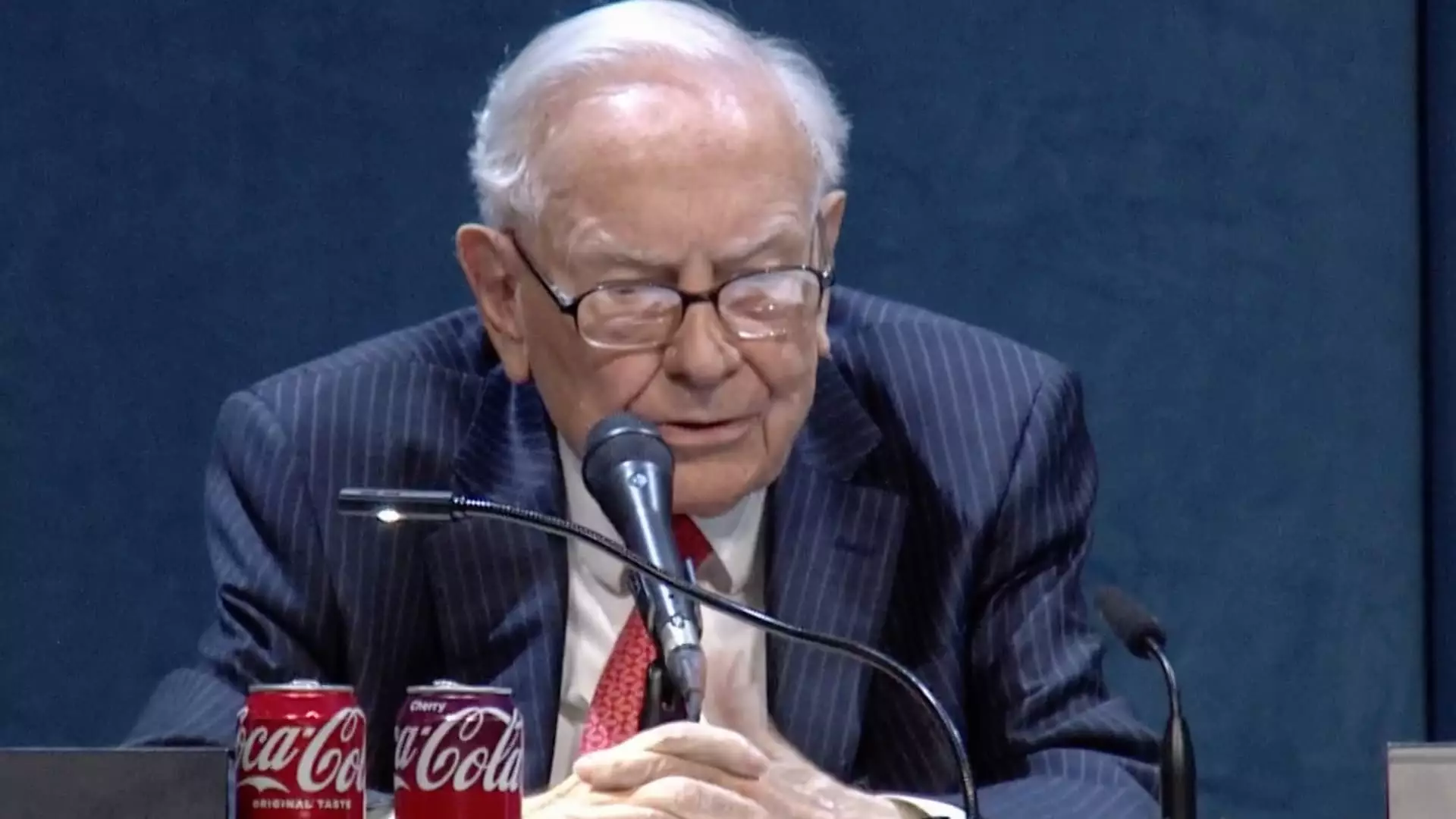Warren Buffett, often hailed as the unrivaled maestro of investing, has recently raised eyebrows as his proposed succession plan has led to an unanticipated decline in Berkshire Hathaway’s stock value. Predictably, investors have been searching for answers in the wake of his announcement to step down as CEO, leaving followers to assess the implications for a conglomerate built on his visionary expertise. Contrary to Buffett’s own predictions, stock prices have plummeted over 10% since the announcement, suggesting that the glow of the ‘Buffett premium’, why investors have historically shelled out more for shares under his stewardship, may be dimming.
The Buffett Premium Unraveled
This so-called Buffett premium—a sort of halo effect derived from his legendary status and astute investment acumen—appears to be deflating before our very eyes. The recent data highlight a striking 15 percentage point underperformance against the S&P 500. This stark divergence raises substantive questions about investor confidence not just in Berkshire’s future performance but in the ability of his chosen successor, Greg Abel, to seamlessly carry on the storied legacy. That educators like David Kass—and others in the investment community—were genuinely shocked at Berkshire’s rapid descent speaks volumes about the fragility of perceived legacy value in a rapidly changing market.
Aging and Adaptation
Buffett’s decision to step down has not arisen solely from a desire to pass the baton; it is reflective of the undeniable effects of aging. Rather than enhancing investor confidence, this revelation sends tremors of uncertainty throughout the market. The announcement raises fears that the traits that made Buffett a legendary figure—the sense of adaptability, foresight, and unyielding dedication—may falter under new leadership. The overwhelming speculation suggests that the real decline may be yet to come, as market analysts estimate an additional 5% to 10% decrease following his official departure.
The Hard Truths Behind Earnings Decline
Contributing to the stock’s faltering performance are the company’s recent financial results. A 14% decline in operating earnings to $9.64 billion during the first quarter of the year has only amplified uncertainties. It has highlighted larger, systemic issues affecting both public and private asset valuations under the Berkshire umbrella. Experts have labeled these trends as ‘algorithm-driven’ movements, indicating that market algorithms may respond more negatively to perceived signals of change than to the actual underlying financial health of the company.
An Uneasy Future for Investors
As Berkshire Hathaway teeters on the brink of further decline, investors find themselves in uncommon territory, bound between hope and trepidation. Despite the company’s continued market cap of over $1 trillion, the uncertainty surrounding Buffett’s exit raises critical alarms about the long-term stability of the company. The impending vacuum of leadership begs the question of whether Berkshire can sustain its once-venerated reputation or whether it will gradually succumb to the pressures that have beset countless corporate giants after their charismatic leaders have stepped back. Investing under the banner of such a legacy may soon require a re-evaluation of ongoing belief in a once-unshakable institution.
In a world wrought with volatility, the clock is ticking for Berkshire Hathaway and its investors, waiting to see if Warren Buffett’s tenure truly has set the stage for everlasting success or if it unintentionally invites an era of instability.

